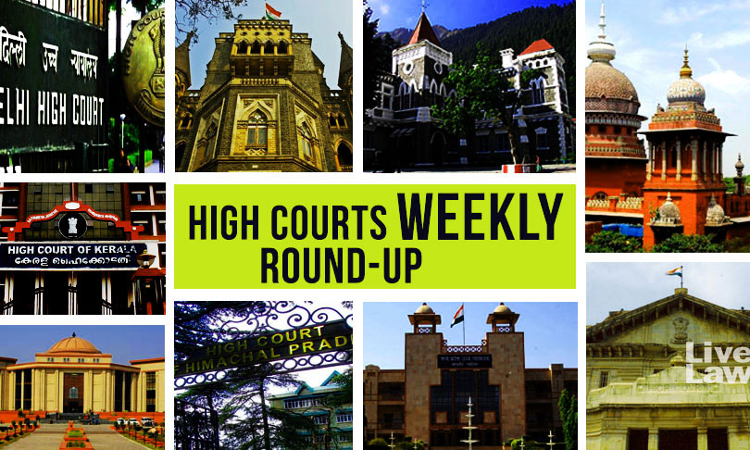- Home
- /
- News Updates
- /
- High Courts Weekly Roundup
High Courts Weekly Roundup
LIVELAW NEWS NETWORK
20 Sept 2020 7:37 PM IST
Week Commencing From September 14, 2020 Till September 20, 2020 Allahabad High Court 1. Elected Representative Not Enjoying The Will Of The People Can't Be Permitted To Be In Power Even For A Second: Allahabad HC [Tripti Rani v. State Of U P & Ors.] The Division Bench comprising of Justices Shashi Kant Gupta and Piyush Agrawal observed that a democratic setup depends upon...
Tags
Next Story



